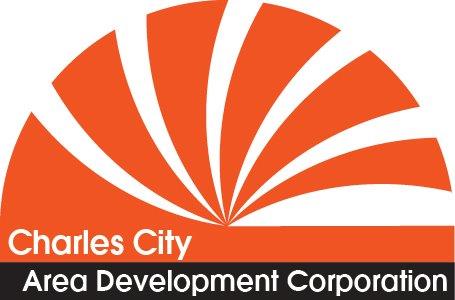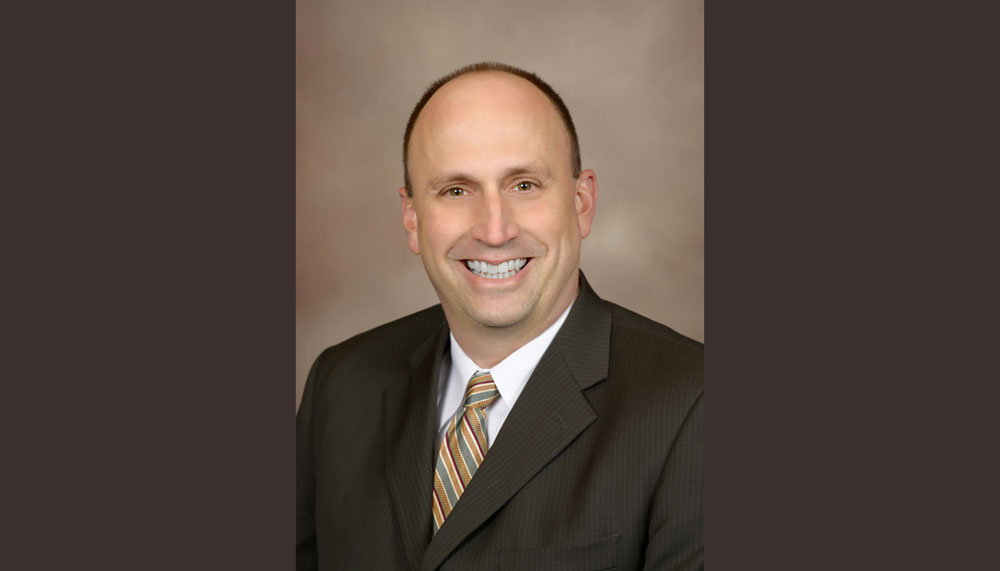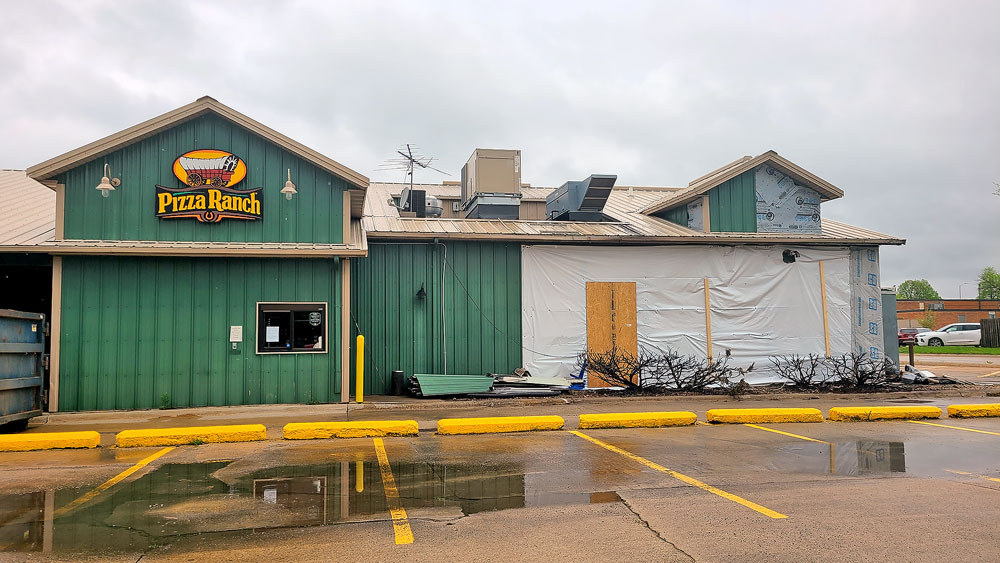Charles City community responds to school budget reduction proposals

By Travis Fischer, tkfischer@charlescitypress.com
It was standing room only at the Charles City High School’s library as the school district’s board of directors heard public comments about a proposed budget reduction plan during its regular meeting on Monday, Dec. 12.
The budget cuts stem from a large drop in student enrollment, which directly impacts the district’s general fund. In October, the district learned that the certified enrollment was down 64 students for the year. In addition, an enrollment audit revealed that the district over-reported to the state by 18 students in the previous year and must pay back those funds. All-in-all, the loss of 82 students creates a $609,000 shortfall in the district’s budget for the 2023-24 school year.
Over the last several weeks, the district’s administrators and program directors have been devising a plan for a targeted budget reduction of $750,000, which would account for both the shortfall and next year’s anticipated cost increases.
 The plan developed by the district includes tens of thousands of dollars in operational cost-saving measures, but as the vast majority of the district’s general fund goes towards employee salaries it is all but impossible to make such a large reduction in budget without cutting staff, school officials said.
The plan developed by the district includes tens of thousands of dollars in operational cost-saving measures, but as the vast majority of the district’s general fund goes towards employee salaries it is all but impossible to make such a large reduction in budget without cutting staff, school officials said.
Some of the staffing reductions in the proposal don’t necessarily mean a loss in those positions. The plan calls for reclassifying the middle school special education and library para-educator positions so that they can be paid out of the school’s special education fund, which is a different pot of money than the general fund. Likewise, a middle school general education position can be reclassified to be paid through the TAG categorical fund.
Elsewhere, the district’s plan identifies areas where a position can be cut with the expectation that remaining staff could pick-up the extra work. Specifically, it calls for the reduction of a middle school leadership teacher position, one of two business teachers, and one of 11 full-time equivalent at-risk coordinators.
The baseline portion of the budget reduction proposal accounts for nearly $600,000 in cuts. To get closer to the goal, three additional options were presented to the board that would result in additional cuts of between $117,000 and $173,000.
The first option would reduce staffing in the middle school music program by two positions, resulting in a savings of $117,332.56.
The second option would reduce one middle school music position and a secondary English teacher for a savings of $120,173.
The third option would reduce one middle school music position and the high school assistant principal for a savings of $173,219.
With up to two of the six music department positions on the line, news of the district’s budget reduction plan sparked a strong response from the Charles City community, who packed the room at Monday’s meeting as more than 50 students, parents, and graduates lined up to be heard during a public comment session that lasted three hours.
“I want you to truly take time to listen to their words,” said Scott Jenson, the first speaker of the evening as he called on the board to table the issue and explore alternative options to cutting the music department. “I don’t think you could possibly have time to hear all the potential solutions these students could come up with on such short notice.”
What followed was an impassioned line-up of speakers detailing how important the music program is to the students that participate and how they feared the consequences of losing well respected instructors.
“There is no doubt in my mind that our music program’s quality will suffer,” said Blake Hoeft, a Charles City sophomore.
“I’m scared to have opportunities possibly being lost,” said Kaity Heckers. “I am terrified for the future of our program.”
Concerns were raised at how losing one or more instructors in the program would impact the workload of those remaining, particularly as the music program is experiencing a rebound in participation in the wake of the pandemic.
“It seems counterintuitive to cut a department that is currently thriving,” said Anders Haglund, a Charles City senior.
“I’m just blown away why we’re here,” said Jeremy Meyer, a parent in the district concerned that the loss of instructors could create a domino effect resulting in the remaining instructors burning out from being overwhelmed.
The Rev. Tom Barnard, who recently hosted the high school choir at Trinity United Methodist, commended the music program and also expressed his concern that the loss of two middle school instructors would have a reaching impact on the entire program as it depends on a strong start in middle school to feed into the high school activities.
“Without teachers in either of these programs, these programs will tank in probably two years,” said Barnard.
Incensed at the perception that fine arts are given a lower priority than other programs, some of the speakers presented alternate options where cuts could be made. Specifically, several speakers stated a preference for cuts at the administrative level. While the high school assistant principal is already among the proposed reduction options, speakers also named the district’s new curriculum director as a potential target for reduction along with the suggestion of moving the superintendent to part-time.
That none of the cuts impact athletic programs was another commonly cited point of contention, resulting in the public resignation of concessions worker Mariah Reh over the perceived inequity.
“I cannot stand with a district that does not treat music equally to sports,” said Reh.
It was also noted that the proposed reductions to the music program appear to be contradictory to the district’s own efforts as the board continues to move forward with a high school refurbishment bond referendum that includes building an auditorium. The $27 million project has become a controversial subject on its own and supporters of the music program raised their concerns about the optics of cutting the music program while asking the community to support the referendum.
Beyond concerns about how cuts may impact the music program itself, students also expressed how important the program is to them socially. Several speakers, both parents of students and students themselves, spoke of how the program offers a place for marginalized students to feel accepted that they may not find elsewhere.
“I wouldn’t be alive today if it wasn’t for music,” said Tristan Schmidt, a 2015 graduate who explained how being involved in the music program offered him a place of belonging. “It will harm the kids that were like me and had nowhere else to go.”
Similarly to the proposed cuts to the music program, there was also a swelling of support for At-Risk Coordinators Dan Caffrey and Karleen Sickman.
Several members of Project RISE, both current and graduated, expressed how important the program has been to them and, likewise, how important Caffrey and Sickman have been to the program.
Project RISE is a student-led program that has created a network of support for the district’s most vulnerable students. Along with supporting each other, the program has grown over the last several years to incorporate student mentoring at the middle school and a food bank program where the students collect food and other items that can be offered to anyone who needs them.
“Our program changes lives,” said RISE student Natalie King. “It has changed mine and has changed others in so many ways.”
At the close of the public comment portion of the meeting, the board quickly moved along the regular agenda until reaching the staff adjustment portion, where it became time for the board to share their thoughts and potentially act on the budget reduction proposal.
In discussing the necessity of the cuts, Superintendent Dr. Anne Lundquist explained the rational behind the choices made, specifically noting that the music program was deemed to be a little bit bigger than it needed to be and was most able to absorb the budget reduction without cutting music offerings for the students. The plan is to increase the ratio of students to teachers and increase the remaining teachers’ available time by pulling them from study hall supervision.
Project RISE would likewise continue, with remaining at-risk staff taking on oversight of the program. The district currently employs 12 people who have all or part of their salaries covered by at-risk funds and Lundquist says another individual has already expressed interest in picking up the work.
“None of these recommendations were made frivolously or lightly,” said Lundquist. “We were very careful not to take any programs away from students.”
Lundquist also noted that while she empathized with the attachment that students have for the music program and specific teachers, any alternate proposal for reduction would invariably result in similar protest.
“We would fill this room with equally passionate students as yourselves,” said Lundquist.
Lundquist also took time to note that the passionate response of the community has not always manifested itself in respectful discourse, noting that she has been subject to personal attacks on social media and calling out poor behavior from some of the meetings’ attendees.
Directly addressing criticisms of the district’s hiring of a curriculum director, Lundquist explained that that the position was necessary to address shortfalls in the school’s performance and that academics must take priority.
“In almost every core area we are below the state average,” said Lundquist. “If we don’t pay attention to academics and we don’t wake up now and make some changes, I’m afraid we’ll be down more students next year.”
Before public comment had even begun, board member Dr. David Schrodt recommended that the board table the matter, feeling that he and other members had not had enough time to fully digest the proposal ahead of the meeting.
Schrodt immediately reiterated that idea as the agenda item came up and the board decided to table the issue to the January 23 meeting, allowing members time to consider the options presented along with providing additional time for the district to take another look at alternative plans.
“This is a horribly difficult decision,” said board President Pat Rottinghaus. “Nobody on this board wants anything but the best for these kids and this community.”











Social Share